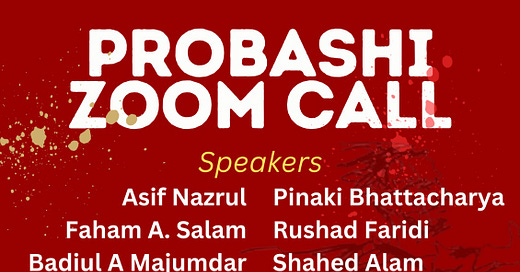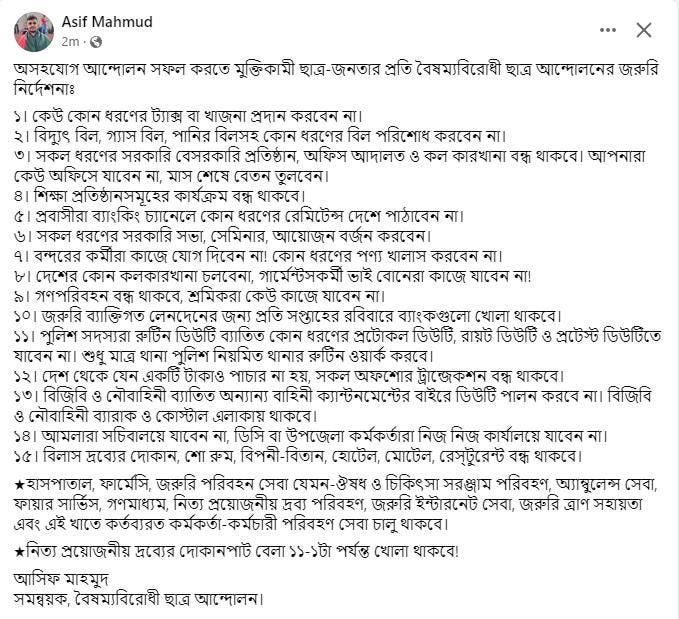Please dial into the diaspora zoom call in support of the Monsoon Revolution.
The non-cooperation movement begins from today.
A key issue right now is that there is no framework for a transfer of power. A few options that are doing the rounds are outlined below, with pros and cons.
Presidential residuary powers
President dissolves the parliament on Prime Minister’s advice.
Prime Minister and Cabinet resigns and declines to resume office.
Constitution is unclear about what the President should do at this point. So the President uses his residuary power and appoints an interim or transitional government.
Transitional government holds election.
This is perhaps the simplest mechanism. However, to my non-expert eyes, this is a constitutional grey area. If this option is chosen, then all pro-democracy forces will need to commit to constitutional reforms to validate it retrospectively.
Presidential powers validated by the Supreme Court
1 and 2 as above.
President asks for Supreme Court advice on the next steps.
Supreme Court advises that an interim or transitional government be formed as above.
Same as 3 and 4 in Presidential powers scenario.
This option maybe constitutionally more full-proof. However, it is contingent on the Supreme Court playing ball. Court could delay matters and create uncertainty.
Parliamentary option
An independent MP in the current parliament is chosen as ‘people’s candidate’ for the Prime Minister
Hasina resigns
The person in (1) is appointed as Prime Minister, with 40-50 independent MPs appointed as ministers without portfolio
Four or five technocrat ministers are appointed to key portfolios
Parliament is dissolved and an election is held at the soonest possible time
This option requires no constitutional amendment or grey areas. However, it legitimises the current parliament and is contingent on the current MPs playing ball.
I would personally favour the first option. But I am certainly no expert.
This maybe the most important conversation to be had in Bangladesh in the coming days.





Urgently seeking to get in touch with you — Diaa Hadid, international correspondent, NPR, covering South Asia